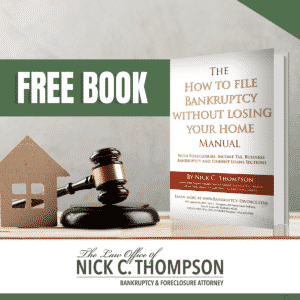Both the IRS and Government guaranteed student loans can perform paycheck garnishments without going to court. But bankruptcy can stop the paycheck garnishments even if they are priority debts or they are not dischargeable. In fact, the IRS and Department of Education can issue the orders even in states that don’t allow garnishments.
However, Chapter 7 may allow you to discharge these debts. Or, even if they are not dischargeable, you must repay them in part or in full in Chapter 13. Doing so allows you to keep your paycheck and repay $100 or $150 per month rather than a 15%, 25%, or even 100% paycheck garnishment.
 Paycheck Garnishments from Student Loans & the IRS
Paycheck Garnishments from Student Loans & the IRS
⎆ What happens before you receive paycheck garnishments
Both the IRS and Student Loan Department must send you written notice at the last address they have on file at least 30 days before issuing a garnishment. You must also get an opportunity for a hearing before an administrative law judge. Additionally, you must get an opportunity to review and copy your IRS or student loan records. Then, they must give you an opportunity to enter into a payment plan instead of garnishment. Here are some other interesting facts about what happens with regard to paycheck garnishments.
- Also note, even if you don’t ask for a hearing before the garnishment begins, you may ask for one after the garnishment stops but it will not stop the student loan garnishment.
- The IRS can do a 100% garnishment in some cases but normally only takes 25%. However, a student loan agency garnishment can take up to 15% of the after-tax “disposable income.”
- Employers are not allowed to fire, refuse to hire, or take disciplinary action against you for a garnishment but may dismiss an employee for “other reasons”.
- For debtors who find themselves involuntarily without employment, there can be no wage garnishment until they are continuously working for more than 12 months.
- However, administrative garnishment restrictions do not apply if someone is suing you in State or Federal Court. As a result, it is becoming popular, for student loans to sue in state or federal court to collect.
⎆ Speak to your lawyer about a long-term payment plan
However, bankruptcy stops these garnishments if you are entitled to a stay. But it will generally only apply for as long as you are in the bankruptcy case.
So it is worth exploring with your bankruptcy lawyer whether a long-term payment plan might benefit you. Chapter 13 is a useful tool for the restructuring of these debts if you cannot qualify for a hardship discharge.
 Resources for Student Loans
Resources for Student Loans
Government Student Loan Garnishments and Collections
How to Stop Federal Student Loan Wage Garnishment • Video
Current Student Loan Interest Rates
How to Stop Student Loan Collections and Garnishments with Bankruptcy
Bankrupt or Discharge Student Loans
Student Loan Rehabilitation Law New Regulations
Do you need help managing your student loan? Contact my office right away to start the conversation. Nick C. Thompson, Attorney: 502-625-0905.

 Paycheck Garnishments from Student Loans & the IRS
Paycheck Garnishments from Student Loans & the IRS

